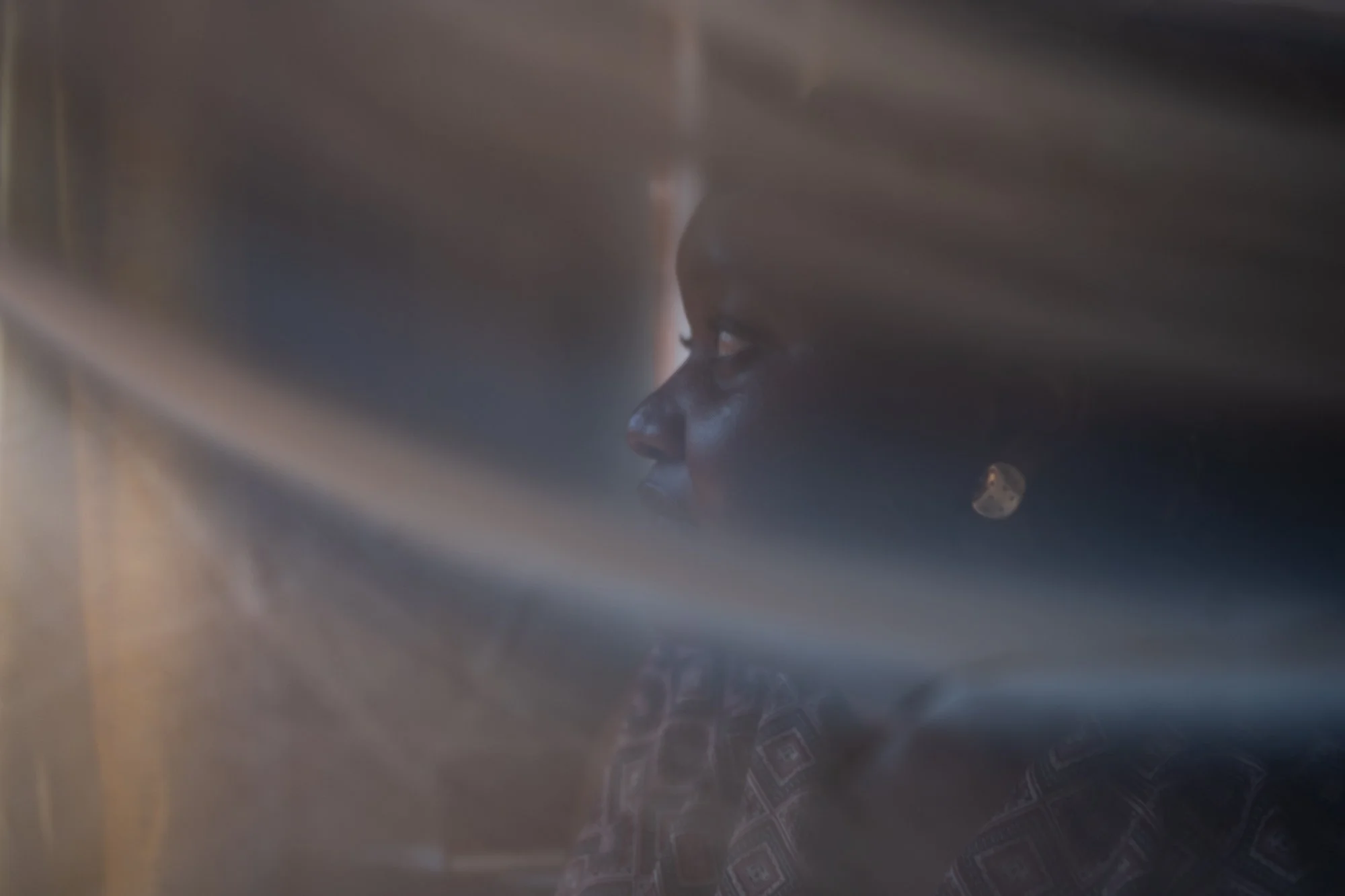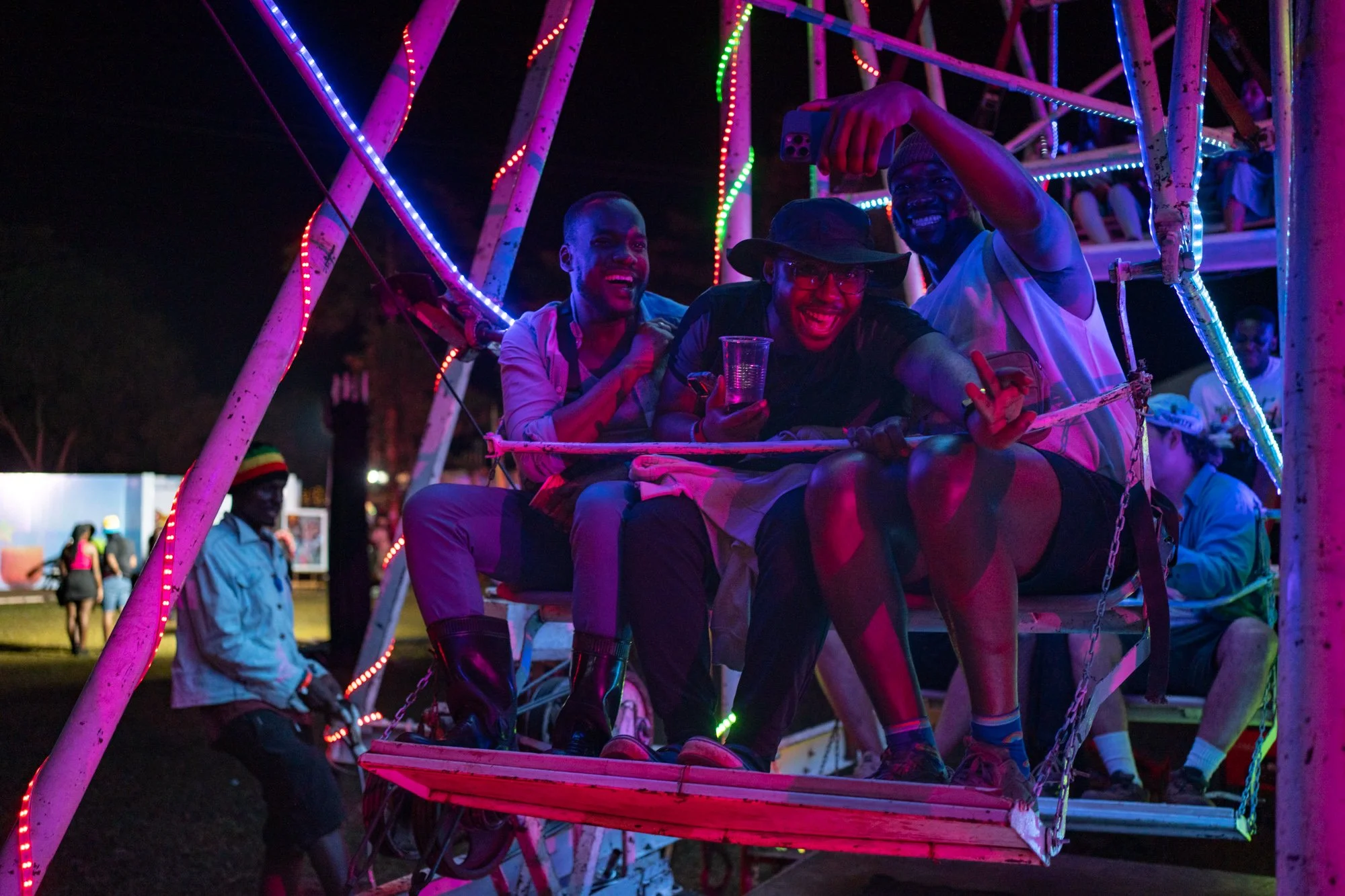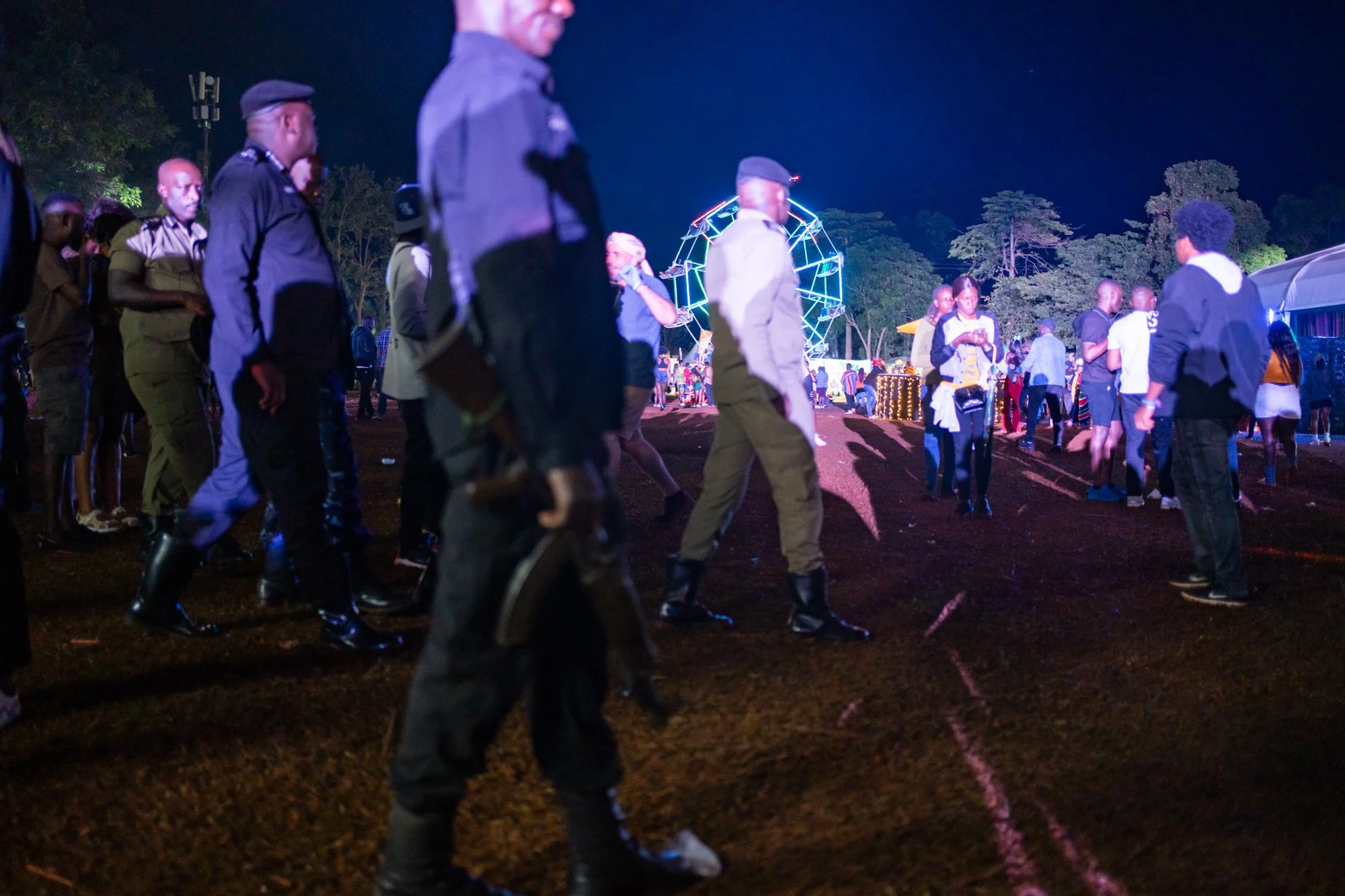
Behind the Curtains - LGBT+ in Ouganda
In June 2023, Ugandan President Yoweri Museveni signed into law a bill passed by Parliament, introducing the death penalty for "aggravated" acts of homosexuality. Since then, the situation for LGBT+ individuals has significantly worsened across the country. Evictions, imprisonments, arrests, violence, and street assaults: the community has been pushed to the margins of Ugandan society. Most are forced to hide their gender identity or sexual orientation for fear of losing access to employment or becoming targets of harassment and violence. In Kampala’s shelters, the daily life is marked by fear, which has only grown worse since 2023. In Jinja, a group of activists attend the Nyege Nyege Festival — East Africa’s largest music festival — which has become a symbol of resistance against the anti-LGBT+ oppression in Uganda.
With journalist Margaux Solinas
Shilah, 25, is a trans woman and sex worker. She lives in a shelter on the outskirts of Kampala. "I can't go out in public because of who I am. I can't safely move outside during the day. I stay locked in here during the day, and only at night, under the cover of darkness, can I go out."
Stuart, 22, found refuge in a house provided by an NGO supporting LGBTQ+ people, on the outskirts of Kampala, after being kicked out by his family. "Since the law passed, everything has gotten worse. If you're identified as LGBTQ+, you can't find a job. I can't trust anyone. They plant spies among us. Someone offered me: 'Bring us ten people, and we’ll give you a million shillings.'"
Members of the community face severe housing difficulties. Often expelled from their families, neighborhoods, or villages, they must start over in places where no one knows them. Some shelters manage to stay open for a few months before being reported to the landlord or police by neighbors. These are often rundown accommodations the landlords reluctantly agree to rent. "There were 23 people staying here, but we were all arrested. Most of our members are homeless, driven from their homes, evicted," says Fabien, head of a shelter on the outskirts of Kampala. "We take many precautions to avoid being noticed in the neighborhood."
In this shelter on the outskirts of Kampala, the curtains are always kept closed to avoid being seen and reported by neighbors.
Wilson, 25, Josh, 25, Ivain, 28, and Shilah, 25, are all members of the PRISM association, in a shelter on the outskirts of Kampala.
Herbert, 21, was supported by the organization Let’s Walk Uganda to complete training in graphic design. They now work with the organization. "I had problems with my parents when they discovered my sexuality. I was forced to leave home and found refuge thanks to an organization. It’s like finding a new family, because your own no longer wants you." That’s what this tattoo means.
"At first, my family didn’t know I was gay. When the law passed, they began to isolate me and kicked me out of the house. They told me: 'You’re leaving, we don’t love you.' It was very traumatic. There were rumors in the neighborhood about gays and lesbians living nearby. They found all of us and took us to headquarters. Inside, I can behave like a girl, but as soon as I go out, I try to act like a boy, for safety," says Eddy, 20, in a shelter on the outskirts of Kampala.
"When they attacked me, they beat me. It was my family who beat me. Then they took me to the police, and I was detained for a week. Now, I suffer from depression and drink a lot. I feel mentally disturbed, psychologically tortured. I have no family anymore. I came to accept that. It’s just me, alone," says Norman, 22.
Charity Kusemererwa, 38, is the founder of the Ugandan NGO Let’s Walk Uganda, which advocates for LGBTQI+ rights. All members of her organization were arrested by the police in December 2023. "They forced us to shut down our offices, but once we were released, we decided to reopen elsewhere." Since then, Let’s Walk has operated in great secrecy in Kampala, out of fear of further violence.
A bullet hole on the premises of SMUG (Sexual Minorities Uganda). The organization’s headquarters has been repeatedly attacked by the police and religious groups. Since then, entry is only possible via magnetic access.
Grace Stone, 26, leads the NGO Lived Realities in Jinja. They live there with their boyfriend Sadir, 19, and Kats, 21. "I was beaten up outside my house in Jinja. I’ve had to move countless times. My neighbors often report me to the authorities when they see men at my home. So I get evicted—and often beaten." A few weeks ago, Grace nearly lost an eye in a violent attack related to their sexual orientation.
Sadir, 19, and Kats, 21, get ready to attend the Nyege Nyege festival in Jinja. "It’s the only place where I can dress the way I want outside—it’s three days, once a year," says Sadir.
Kats, Sadir, and Grace leave their shelter on the outskirts of Jinja to attend the festival. They make sure not to leave the house all at once. A trusted driver waits at the gate to take them to the event. « I was beaten up outside my house in Jinja. I’ve had to move countless times. My neighbors often report the presence of men at my home. So I get evicted and often beaten," says Grace Stone, 26, Sadir’s partner and head of the NGO Lived Realities.
The Nyege Nyege Festival, the largest music festival in East Africa, has become a symbol of resistance against anti-LGBTQ+ oppression in Uganda. Every year, hostile groups try to get it canceled. It takes place in Jinja, one of the country’s most conservative cities.
Brian Aliganyira, 38 (right), runs Ark Wellness, a health clinic in Kampala dedicated to the community. Access to healthcare—especially PrEP—remains difficult for LGBTQ+ people, particularly in government-run hospitals and health centers. Ark Wellness is supported by several international NGOs, which allows it to offer free care. A 2021 study revealed that 30% of LGBTQ+ people in Uganda avoid seeking medical help out of fear of discrimination and violence.
"Music is our form of resistance," says Tayo, one of the DJs from Anti Mass, a Kampala-based collective that used to organize events twice a month exclusively for female and queer artists. "We had to shut down in 2023. In today’s climate of violence, a public queer party is impossible. » Here, Nsasi, another queer DJ, performs at dawn on one of the festival’s stages.
Kats and Sadir dance at the Nyege Nyege festival. Even at the festival, Grace remains alert. « I check that my bodyguard is nearby," explains the activist. "You can never be too careful."
Grace and Sadir embrace during the festival. Even at Nyege, it’s not a common act. A few minutes later, the police arrived, and the group quickly dispersed into the crowd.
This year, all the organizers agree: the security measures deployed are unprecedented. Police and army forces are everywhere, in constant motion. "It’s a way to keep an eye on the situation while giving the international community the impression that the country is open-minded," explains Grace Stone.
A 2019 study by Sexual Minorities Uganda (SMUG) revealed that 60% of Ugandans believe LGBTQ+ people should be imprisoned—highlighting the depth of social stigma.


















